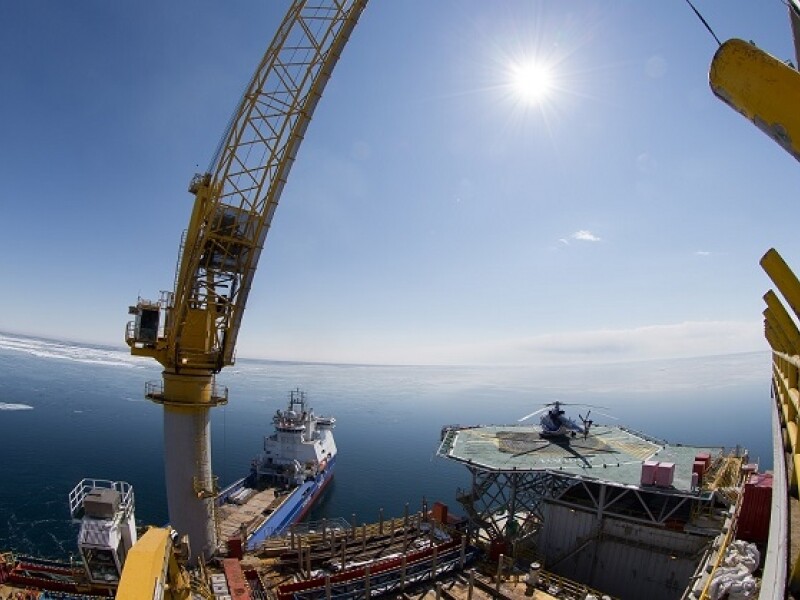Exxon Mobil Corp. has declared force majeure on its Sakhalin-1 operations offshore Sakhalin Island in the Russian Far East, attributing its decision to a disruption in crude oil shipments and a subsequent slowdown in production following the West’s imposition of sanctions against Russia over the ongoing conflict in Ukraine.
Exxon subsidiary Exxon Neftegaz Ltd. (ENL) operates Sakhalin-1 under a production-sharing agreement (PSA) in which it holds a 30% stake in partnership with the Japanese Consortium, Sakhalin Oil and Gas Development (SODECO), which holds another 30%; India’s ONGC Videsh Ltd. with 20%; and a further 20% held by Russia’s state-owned Rosneft.
In its Q1 earnings call on 29 April, ExxonMobil announced that it had recorded a $3.4 billion charge related to its Sakhalin-1 investment, reflected as an unfavorable identified item which “mainly impacts the upstream segment.”
The company estimated its Q1 earnings at $5.5 billion ($1.28 per share assuming dilution) and reported that the $3.4 billion charge related to its planned exit from Sakhalin represented $0.79 per share assuming dilution.
Exxon’s chairman and CEO Darren Woods told investment analysts participating in the analysts call that Sakhalin-1 operations represented “less than 2% of our total production” in 2021, “about 65,000 oil equivalent barrels per day, and about 1% of our corporate operating earnings.”
A Proving Ground for New Tech in Extended-Reach Drilling
A poster child for world records in extended-reach drilling, Sakhalin-1 initiated oil production in 2005 and is today exporting about 273,000 B/D of light, sweet “Sokol” grade crude (a grade similar in quality to that produced in the US Permian Basin). South Korea is the principal buyer of Sokol along with some sales going to Japan, Australia, Thailand, and the US, according to Exxon.
India’s ONGC Videsh told Reuters on 2 March that it did not see “any immediate impact” on Sakhalin-1’s operation when asked to comment after Exxon declared that same day its decision to exit about $4 billion in assets (including Sakhalin-1) and cease all of its Russian activities.
In late March, another partner in the PSA, Japan Petroleum Exploration Co. (Japex) said, in unveiling its long-term business plan, that it planned to keep its stake in Sakhalin-1, Reuters reported at the time. Japex owns a 15.28% stake in the SODECO consortium.
A “Catch-22” for India’s ONGC and Japan’s SODECO
Because ONGC Videsh and SODECO own their share of production under the PSA, they do not risk violating sanctions by selling it; rather, sanctions are causing problems on the shipping side of the export process, making Sakhalin-1 oil harder to monetize.
ONGC exports its Russian crude through a tender process, loading oil in South Korea for shipment to end buyers in North Asia. In March however, ONGC received no bids in its tender for Sokol deliveries, forcing it to sell one cargo to Indian state refiner Hindustan Petroleum Corp. and another to Bharat Petroleum Corp., according to Reuters.
In response to the export bottleneck caused by shippers' hesitancy to incur reputational risk to their inability to find insurance cover, an Exxon spokesman said that ENL “has curtailed crude oil production” at Sakhalin-1 while it develops its Russian exit plan “addressing contractual and commercial obligations."
LNG Was the Prize, Oil Only a Means to an End
In truth, Exxon may have dodged the bullet of financial risk by exiting Sakhalin-1 in the later stages of the project’s life as a source of crude oil, but before major investment would be committed to gas production and construction of a new LNG processing complex to compete long-term against Russia’s Gazprom in Far East markets.
In early April, the governor of Russia’s Far East region of Khabarovsk informed local mass media that ExxonMobil had suspended its long-anticipated Russian Far East LNG project to deliver pipeline gas from Sakhalin-1 to a proposed processing facility for LNG exports from the port of De-Kastri on the Russian mainland.
The ExxonMobil-led Sakhalin-1 consortium had already awarded the front-end engineering and design contract to Houston’s TechnipFMC and Japan’s JGC in 2020 for the proposed $4.2 billion, 6.2-mtpa capacity plant and meetings had been held to discuss updates—1 month before the conflict in Ukraine erupted.
As of late April, Exxon reported also that it had “significantly phased down” its Russian chemicals and lubricants businesses and “suspended” sales of chemicals and lubricants into Russia and Belarus.


